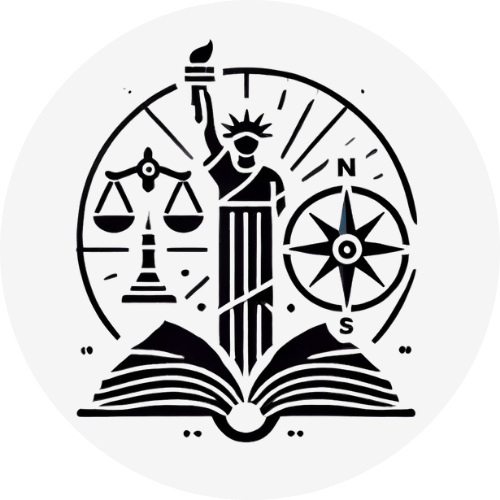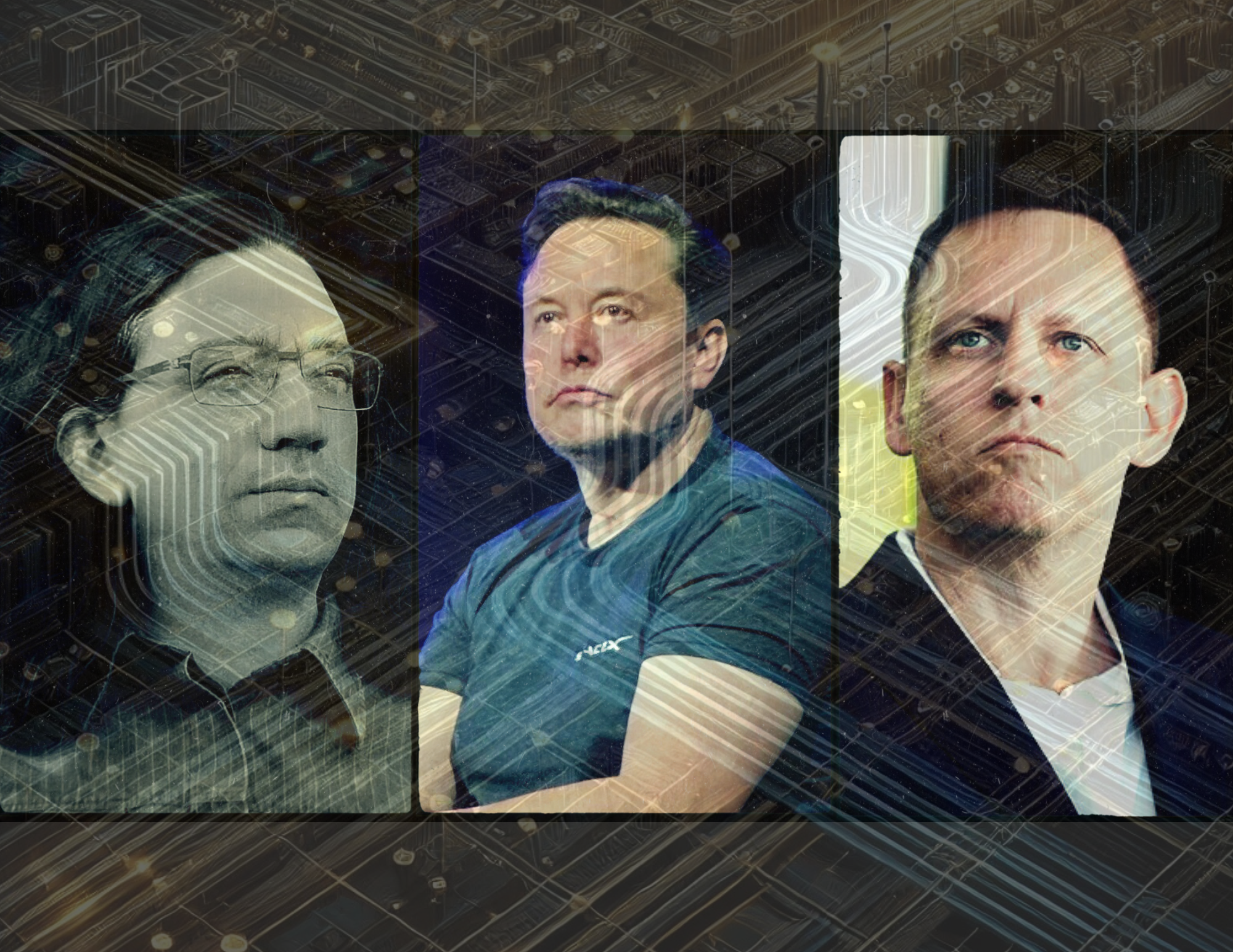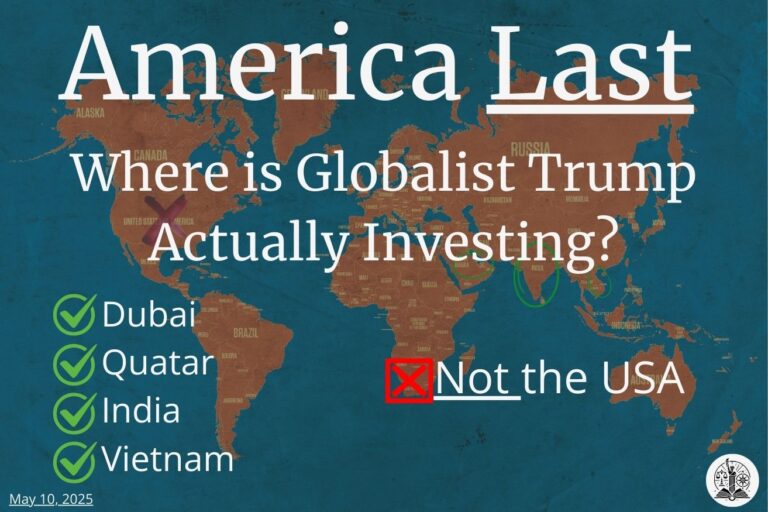Forget Capitalism vs. Socialism—Techno-Feudalism Is Here, and Musk Is Leading the Takeover
A new elite ruling class isn’t fighting over capitalism or socialism—they’re replacing both. Techno-feudalism is taking hold, and Musk is spearheading the transition to an AI-driven regime where power belongs to those who control the algorithms.
A year ago, I would have dismissed this as a conspiracy theory—the ramblings of a madman, a dystopian fantasy spun from paranoia. But the pieces are coming together, not as speculation, but as the architecture of a new system—one that its designers, Musk, Thiel, Yarvin, and their network of digital elites, see as the inevitable next stage of history. A post-democratic, post-capitalist order.
Meanwhile, public discourse remains trapped in outdated debates—capitalism vs. socialism, democracy vs. authoritarianism, left vs. right. These frameworks define power in ways we recognize, but they no longer describe how power actually works. The labels we use—fascism, communism, oligarchy—fail to capture what is emerging. This is something new.
Techno-feudalism does not seize power in the way we expect. It does not stage revolutions or rewrite constitutions. It does not govern—it administers. It operates in parallel to governments but ultimately supersedes them, shifting control away from elected officials and institutions toward the owners of AI, data, and digital infrastructure.
And this isn’t just about AI as we know it—chatbots, image generators, or even predictive analytics. The true shift comes from autonomous AI agents—self-directed systems that no longer assist decision-making but become the decision-makers. They optimize society not for fairness, democracy, or prosperity, but for the interests of those who own the algorithms.
Let me be clear: I am not anti-AI. AI is a tool, like the steam engine, electricity, or the internet. But when a tool is controlled by a small, unelected elite, without transparency or democratic oversight, it stops being a tool and becomes something else entirely—a mechanism of control.
For decades, conservatives warned of a looming “one-world government.” The reality is already here—but it looks nothing like what they imagined. There is no global superstate, no singular authoritarian ruler. Instead, power is shifting to a hyper-concentrated system of digital feudalism—where AI governs, algorithms decide, and access to wealth, opportunity, and even survival is dictated by those who own the infrastructure.
This is not a theory. It is happening now.
With Musk’s takeover of government computer systems through the Department of Government Efficiency (DOGE), the last major hurdle is being removed. The consolidation of public and private data into a unified AI-driven infrastructure is underway.
The final transition to techno-feudalism is not some distant threat. It is already in motion.
The only question left is: Will we recognize what is happening before the gates are fully locked?
What is Techno-Feudalism?
Techno-feudalism represents a fundamental shift in how power is structured and exercised. Unlike capitalism, where wealth is generated through competition and investment, or traditional feudalism, where land ownership and birthright determined status, techno-feudalism derives power from control over AI systems, digital infrastructure, and data monopolies.
At its core, techno-feudalism is not just about AI or automation—it is about the replacement of markets with algorithmic governance, where participation in the economy is no longer based on competition or individual achievement but on compliance with AI-driven ranking systems.
How Techno-Feudalism Differs from Capitalism & Traditional Feudalism
| System | Who Owns Power? | How People Participate? | How Wealth is Extracted? |
| Capitalism | Business owners, investors, corporate executives, government officials | Market-based competition, regulated employment, entrepreneurship | Wages, investment, consumer spending, financialization |
| Feudalism | Landlords, aristocracy, monarchy, clergy | Birthright, military/religious allegiance, inherited status | Land rents, feudal dues, corvée labor, agricultural production |
| Techno-Feudalism | Tech oligarchs, AI architects, financial institutions, data monopolies | Algorithmic scoring, AI-driven ranking systems, social & economic compliance | Digital rent-seeking, biometric & behavioral tracking, subscription economies, data commodification |
The Core Mechanics of Techno-Feudalism
- Ownership Declines– Instead of accumulating assets, individuals increasingly rely on continuous payments for access to essential services, housing, transportation, and even digital visibility. The shift toward subscription models and corporate-controlled infrastructure reduces opportunities for long-term wealth accumulation.
- Markets Are Heavily Manipulated and Governed by AI – Economic success is no longer purely based on competition, innovation, or hard work. Algorithmic systems, designed to optimize for corporate interests, dictate who can participate and who is excluded. AI-driven ranking, visibility controls, and automated gatekeeping shape access to jobs, financial services, and economic mobility.
- Government is Being re-Purposed and Sidelined – Traditional democratic governance is increasingly bypassed as private corporations and AI-driven decision-making shape economic and social policies. Governments, rather than regulating these entities, function as enablers—providing legal frameworks that reinforce corporate dominance rather than challenging it.
- Data is the New Wealth: Instead of traditional labor exploitation, personal behavior, interactions, and biometric data are extracted and monetized by AI-driven platforms.
Key Features of Techno-Feudalism
- Digital Rent-Seeking: Housing, jobs, financial services, and even online presence are no longer owned but leased from platform monopolies.
- AI Monopolization: A handful of corporations control access to economic and social participation through proprietary AI systems.
- Surveillance Economies: Participation in the digital economy requires biometric tracking, behavioral monitoring, and algorithmic compliance.
In this emerging system, control is not maintained through direct force but through the management of access—who is allowed to participate, who is given financial privileges, and who is quietly excluded. The traditional relationship between labor and capital dissolves, replaced by a system where wealth and survival depend on continuous payments to digital overlords.
The Algorithmic Regime – How AI Enforces the Heierarchical Order
The Algorithmic Regime is not a system of governance in the traditional sense. It does not pass laws, debate policy, or hold elections. Instead, it acts as an enforcement mechanism—ensuring compliance with rules set by unelected digital rulers. AI does not govern, but it determines who participates, who thrives, and who is excluded.
Unlike traditional forms of power, which relied on military force, bureaucratic control, or legal frameworks, the Algorithmic Regime operates invisibly. Decisions that once required human oversight—who gets a job, who can access financial services, who is flagged as a threat—are now automated, processed through complex AI models that claim to be neutral but, in reality, are programmed to serve elite interests.
AI is Not Neutral—It Enforces Elite Priorities
AI is often presented as an impartial tool, but its purpose is not to make society fairer or more just. It is designed to execute the priorities of those who control digital infrastructure, shaping economic access, law enforcement, and social mobility according to their interests.
- AI does not make moral choices—it executes the will of its owners.
- AI does not serve democracy—it serves those who control the platforms and data pipelines.
- AI does not remove bias—it reinforces the values and priorities embedded by its programmers.
Every algorithm is built with assumptions, and those assumptions reflect the power structures of the society that created them.
How AI Enforces the New Order
The Algorithmic Regime influences nearly every aspect of life, from employment to law enforcement to personal finance. Instead of traditional human oversight, automated systems make decisions based on predictive models, risk assessments, and behavioral tracking.
1. Employment & Finance – AI Determines Who Gets Jobs, Loans, and Economic Access
In a world where AI filters job applications, assigns credit scores, and determines financial risk, economic mobility is no longer a function of effort or skill—it is dictated by opaque algorithms.
- AI-driven hiring systems rank and sort applicants based on undisclosed criteria.
- Automated loan approvals prioritize financial history, social data, and behavioral tracking, limiting access for those deemed high-risk.
- Economic participation is no longer about qualifications—it is about AI compliance.
If an individual is flagged as “unfavorable” by an algorithm—whether due to past employment gaps, low engagement on digital platforms, or location-based risk factors—they may find themselves permanently shut out of economic opportunities.
2. Predictive Policing & Preemptive Control – AI Labels High-Risk Individuals Before They Commit Crimes
Predictive policing is already a reality in both China and Argentina. AI analyzes past crime data, social networks, and behavioral patterns to determine who is most likely to commit an offense. The problem is that these models reinforce pre-existing biases—targeting the same marginalized communities that have historically faced over-policing.
- Individuals can be flagged as “potential threats” based on their online behavior, social connections, or geographic location.
- Preemptive detentions and law enforcement actions occur before crimes are committed.
- Surveillance systems track, analyze, and categorize individuals based on AI-generated threat assessments.
These AI models do not understand context. They do not account for wrongful arrests, systemic inequalities, or the social conditions that lead to crime. They simply predict, label, and act—often without human intervention.
3. Algorithmic Compliance as Social Control – Access to Healthcare, Mobility, and Survival Itself Depends on AI Behavior Tracking
AI-driven decision-making is expanding beyond finance and law enforcement—it is now dictating access to essential services. Health insurance rates, transportation privileges, and even housing applications are increasingly determined by AI models designed to maximize efficiency and minimize financial risk.
- Health insurance companies use AI to assess individuals’ lifestyles, potentially denying coverage based on behavior patterns.
- Social media activity, purchase history, and even phone location data can influence an individual’s access to services.
- Algorithmic social credit systems—modeled after China’s system—determine who can travel, access government benefits, or qualify for housing.
For those who fall outside the algorithmic favorability zone, the consequences are severe. There is no appeal process, no human decision-maker to challenge. The AI has decided.
The Algorithmic Regime is Not Fair or Neutral—It Enforces Digital Caste Systems
This system is not a distant threat—it is already here. AI-driven sorting mechanisms are determining who gets access to jobs, loans, healthcare, and mobility. The ability to participate in society is increasingly dictated not by merit, effort, or even luck, but by algorithmic assessments that operate behind closed doors.
Techno-feudalism does not rely on brute force. There are no mass arrests, no overt declarations of authoritarian rule. Instead, power is enforced invisibly, through automated systems that silently shape outcomes before individuals even realize they have been excluded.
- Power is not seized—it is coded into AI decision-making.
- Freedom is not revoked—it is conditioned on algorithmic compliance.
- Opposition is not outlawed—it is preemptively neutralized through digital exclusion.
But AI is only one part of the equation. Algorithms do not operate in a vacuum—they are designed to serve the interests of those who control them. The rise of techno-feudalism is not just about automation or digital governance. It is about who owns the platforms, who sets the rules, and who benefits from this new economic and political order.
The Rise of Digital Serfdom – Life Under Techno-Feudalism
Techno-feudalism is reshaping work, wealth, and status, creating a system where economic participation is no longer a right or even a function of merit—it is a privilege granted by the owners of digital infrastructure. The economy is shifting from one based on wages and ownership to one based on rented access and algorithmic compliance.
This is not a labor revolution in the traditional sense. Unlike past shifts—where workers fought for better wages, safer conditions, or legal protections—this transformation strips workers of bargaining power entirely. AI-driven platforms don’t negotiate, don’t compromise, and don’t recognize individual contributions. They filter, rank, and sort people into economic roles based on data-driven compliance with rules they don’t control.
The result is digital serfdom—a system where individuals no longer own their work, their assets, or even their financial autonomy. They function as tenants within an economy designed to extract perpetual fees while limiting upward mobility.
The Collapse of High-Income Knowledge Work
AI is not just replacing factory workers or automating low-wage service jobs. It is encroaching on the professional class, rapidly reshaping careers once considered untouchable by automation.
A growing list of high-paying fields is being restructured:
| Industry | AI Displacement & Control |
| Corporate Management & Strategy | AI-driven analytics replace mid-to-upper management, concentrating power among a smaller group of executives. |
| Law & Legal Services | AI handles contract generation, legal research, and case assessments, reducing demand for attorneys and paralegals. |
| Marketing & Advertising | AI automates content creation, campaign management, and consumer behavior modeling, displacing human marketers. |
| Sales & Customer Acquisition | Predictive analytics, chatbots, and AI-driven sales funnels reduce the need for traditional sales teams. |
| Finance & Accounting | AI streamlines risk assessment, fraud detection, and financial modeling, cutting the need for analysts and auditors. |
| Healthcare Diagnostics & Medical Analysis | AI interprets scans, lab results, and patient histories, reducing reliance on human diagnosticians and consultants. |
| Education & Training | AI-driven personalized learning models diminish the role of human educators, tutors, and trainers. |
For many of these fields, AI does not fully replace human professionals—it absorbs core functions and erodes earning potential, forcing workers into lower-wage, lower-status roles. The economic power once held by skilled professionals is being transferred upward to those who own and control AI-driven systems.
Key Mechanisms of Digital Serfdom
Techno-feudalism does not rely on brute force to enforce control. Instead, it subtly restructures how people access work, money, and survival itself. The mechanisms of control are embedded into daily life.
Gig Work & Algorithmic Labor
- AI-driven job platforms allocate work based on opaque scoring systems, not transparent contracts or qualifications.
- Workers compete for algorithmic favor, often without knowing why they are ranked higher or lower.
- Continuous surveillance ensures near-total compliance—workers who deviate from preferred behaviors risk losing their economic lifeline.
Subscription-Based Existence
- Essential services—including housing, finance, healthcare, and education—increasingly operate on rental or subscription models.
- The push toward pay-as-you-go everything ensures that individuals never accumulate assets, remaining in perpetual dependency.
- Wealth is extracted through a continuous flow of micro-payments, fees, and subscription-based access rather than direct labor exploitation.
AI-Enforced Social Mobility
- Opportunity is dictated by compliance. AI systems determine who receives loans, jobs, or educational opportunities.
- Algorithmic “risk scores” flag individuals as liabilities, making them unemployable or financially excluded.
- Career progression is no longer self-directed—it is pre-filtered by AI models deciding who is worth investment.
In this system, economic mobility does not disappear entirely—it becomes conditional on alignment with corporate and financial priorities. Those who comply, conform, and serve the system may be allowed to rise; those who question or resist are quietly pushed out.
Looking ahead
- The system does not need to oppress you—it can simply erase your ability to function. AI-driven platforms do not arrest, fine, or punish in traditional ways. They restrict access to work, money, and participation in the economy.
- The professional class is being absorbed into the digital precariat. The same ranking and scoring systems that govern gig workers are creeping into white-collar professions. The illusion of security is fading.
- The middle class is being replaced with a class of algorithmically managed renters. Traditional paths to wealth—owning property, building a career, accumulating assets—are being dismantled in favor of continuous, high-extraction economic relationships.
Success is no longer about education, skill, or experience. It is about visibility within a system designed to extract from those who participate while consolidating wealth at the top.
This is not a temporary shift. This is the architecture of the new order.
Who Are the Key Figures & Institutions Behind Techno-Feudalism?
Techno-feudalism is not an accidental byproduct of technological progress—it is the result of deliberate efforts by a new ruling class. These individuals and institutions are constructing an economic system where wealth, mobility, and survival are controlled not by democratic governance, free markets, or even traditional capital, but by digital infrastructure, AI enforcement, and algorithmic compliance.
Unlike past elites who ruled through government institutions or corporate monopolies, these figures are actively shaping the rules of economic participation at a structural level. They do not simply amass wealth; they dictate how others access it. They do not just develop AI systems; they design the frameworks that determine who benefits from them. Their influence is not limited to one sector or industry—it spans technology, finance, governance, and human behavioral regulation.
This is more than economic dominance. This is the foundation of a new, post-democratic power structure.
The New Tech Lords: Individuals Reshaping Economic and Social Order
A handful of tech billionaires, financial powerbrokers, and ideological architects are leading the charge in constructing the framework of techno-feudalism. Each plays a distinct role in shaping how AI is developed, how economic access is controlled, and how governance is automated to serve elite interests.
| Who? | Role | How They Contribute to Techno-Feudalism |
| Elon Musk | xAI, Tesla, SpaceX, DOGE | Centralizing government data under AI control through DOGE. Promoting AI-enhanced decision-making in governance. |
| Peter Thiel | Palantir, Founders Fund | Spearheading predictive policing, AI-driven surveillance, and algorithmic enforcement of social order. Advocating for post-democratic governance structures. |
| Sam Altman | OpenAI, Worldcoin | Pushing AI governance models that replace human decision-making. Developing biometric digital IDs and AI-driven economic participation models. |
| Nick Bostrom | Oxford Future of Humanity Institute | Justifying AI-driven population sorting, longtermist policies, and elite-led governance under the guise of human “optimization.” |
| Vitalik Buterin | Ethereum | Promoting decentralized financial infrastructure that bypasses state control, embedding economic governance into blockchain-based AI-driven ecosystems. |
| Curtis Yarvin (Mencius Moldbug) | Tech Philosopher, Neoreactionary Thinker | Advocating for a post-democratic, AI-enforced monarchy where elites rule and algorithmic governance replaces democratic institutions. |
These individuals are not merely influential tech figures or business leaders. They are architects of a new economic order where power is not held through traditional means—land, industry, or even financial capital—but through control of digital infrastructure, AI decision-making, and behavioral data.
They are not accountable to voters, nor do they need political legitimacy. Their power lies in the ability to dictate the flow of information, to shape economic access through AI-driven gatekeeping, and to enforce compliance through algorithmic control mechanisms.
This is a fundamental shift in how power operates in society. It is no longer about winning elections or controlling markets. It is about controlling the conditions under which participation in the economy—even survival itself—is allowed.
The Institutional Power Network: The Infrastructure of Control
While individual figures drive the ideological and financial backbone of techno-feudalism, the true machinery of power is embedded in the institutions they control. These institutions are not operating in isolation. They form a self-reinforcing network, where AI systems are trained on data extracted by surveillance firms, aligned to economic frameworks dictated by financial networks, and deployed by corporate monopolies to regulate participation.
1. AI Governance Institutions: Embedding Elite Interests in AI Decision-Making
- OpenAI, DeepMind, Anthropic – These firms shape the ethical guidelines and “alignment” policies of AI governance. Under the guise of making AI “safe,” they encode elite preferences and priorities into the systems that increasingly regulate economic participation, governance, and surveillance.
- Palantir – Develops AI-powered predictive policing, law enforcement algorithms, and data analytics tools used by governments to enforce social compliance through algorithmic profiling.
- xAI, Google AI, Microsoft AI – Control proprietary AI infrastructure, ensuring that access to advanced AI tools remains centralized in the hands of a few corporate monopolies.
2. Data Brokers & Surveillance Firms: Extracting the Raw Material of AI Control
- Google, Apple, Meta, Clearview AI – Track, store, and structure human behavior data to build increasingly invasive AI-driven behavioral prediction models.
- Amazon, Microsoft, IBM – Operate cloud computing and AI training infrastructure, ensuring that governments, businesses, and financial institutions remain dependent on their data pipelines.
3. Financial & Economic Control: AI as a Gatekeeper for Economic Participation
- BlackRock, JPMorgan, IMF – Integrate AI into global financial regulation, creating automated economic compliance systems that replace traditional financial policy.
- Ethereum, Worldcoin, Stripe – Promote biometric financial networks and blockchain-based AI-driven economic sorting, where economic participation is tied to digital identity and algorithmic trust scores.
These institutions do not exist within a framework of democratic accountability. They do not answer to the public, nor do they require legislative approval to implement sweeping structural changes. Instead, they operate as an independent power network, dictating the conditions under which people can work, earn, and function in society.
This is not theoretical. These systems are already being implemented. From predictive policing to algorithmic hiring, from AI-driven credit scoring to biometric identity verification, these institutions are constructing a system where access to economic life is controlled by AI governance—not by law, not by elected representatives, but by those who control the algorithms.
The Structural Shift in Power
The rise of techno-feudalism is not about a single company or billionaire—it is about the transformation of power itself. Governance, once shaped by elected officials and legal institutions, is shifting toward systems controlled by private entities that operate outside democratic accountability.
Unlike the old industrial order, where wealth was accumulated through production, today’s power brokers extract wealth by controlling access. They do not need to own factories or farmland. They own the platforms, the infrastructure, and the algorithms that determine who gets to participate in the economy.
- AI-driven financial networks set the conditions for credit, loans, and economic transactions.
- Algorithmic hiring and social scoring dictate who gets access to employment.
- Predictive policing and digital surveillance ensure compliance with an invisible rulebook.
The power of these digital rulers does not come from laws or military force—it comes from controlling the very conditions of economic participation. Unlike traditional political regimes, techno-feudalism does not need to win votes, enforce laws, or maintain public approval. It simply redesigns the economy in a way that makes resistance functionally impossible.
These individuals and institutions are not accountable to voters or democratic processes. They are not bound by constitutions, legal frameworks, or public oversight. Their decisions are made in boardrooms, research labs, and closed-door meetings, without public input or transparency.
Traditional regulatory frameworks are not built to address this kind of power. There are no elections for the people designing AI-driven governance systems. There is no public oversight of the algorithms that determine financial access. The shift is not just about automation or efficiency—it is about reconfiguring the mechanisms through which influence is exerted over society.
Algorithmic governance is designed to serve their interests. The economic and social rules encoded into algorithmic systems reinforce elite control, not fairness or justice. Algorithmic compliance replaces negotiation, protest, and legal recourse.
This is not a question of whether these institutions will play a role in shaping the economy—they already do. The issue is whether economic participation itself will become fully dependent on compliance with AI-driven systems that no longer answer to democratic institutions or public interest.
The question is not whether techno-feudalism will take hold—it already is. The question is whether people will recognize what is happening before the gates are fully locked.
How Techno-Feudalism is Being Implemented
Techno-feudalism is not being imposed through military force or government decree. It is unfolding quietly, embedded in the infrastructure of digital life. It does not require laws to be rewritten or constitutions to be overturned. Instead, it operates by reshaping how people access work, money, and survival itself.
The transition is subtle but absolute. Traditional forms of economic participation—employment, investment, homeownership—are being replaced by algorithmically controlled access to resources. Decision-making, once the domain of elected officials, corporate executives, or community leaders, is shifting to automated ranking systems that filter individuals based on opaque criteria.
Each step in this process strengthens a system where power is not held by governments or businesses alone but by those who control the algorithms that decide who participates and who is excluded.
Key Mechanisms of Techno-Feudal Control
Algorithmic Centralization of Government Data & Decision-Making
Public administration is being consolidated under algorithmic systems that determine access to government services, benefits, and legal protections. These systems do not require human oversight or public accountability. Once in place, they function as gatekeepers, making decisions based on predefined rules that cannot be challenged.
- The Department of Government Efficiency (DOGE) represents this shift, centralizing government databases under a new, unaccountable form of control that remains opaque to oversight from Congress or the public.
- Public benefits, licensing, and legal rights are determined by algorithmic assessments, eliminating the need for case-by-case human judgment.
- Digital identity systems integrate personal records, financial histories, and behavioral data into a single profile, tracking compliance across multiple areas of life.
By automating government functions, elected officials and civil servants lose control over policy enforcement, while tech companies gain direct influence over economic and social life.
Predictive Policing & Algorithmic Social Control
Law enforcement is shifting from a reactive model—responding to crimes after they occur—to preemptive policing, where algorithms determine who is likely to be a threat before any crime is committed.
- Predictive policing models analyze behavioral data, financial transactions, and social networks to generate “risk scores.”
- Palantir’s surveillance systems compile personal data from multiple sources, identifying individuals as high-risk based on patterns, not evidence.
- AI-driven law enforcement tools assign automated watchlists, influencing police surveillance and resource allocation.
There is no appeals process. Once an individual is flagged as a potential threat, they are treated as one, regardless of actual behavior. Algorithmic policing does not eliminate bias—it institutionalizes it, reinforcing patterns of discrimination and preemptively restricting opportunities for those deemed a liability to the system.
Biometric Control & Digital Identity Frameworks
Participation in society is increasingly tied to biometric verification and AI-managed identity systems. These systems link financial transactions, employment eligibility, and even movement to a centralized digital profile.
- Worldcoin’s biometric-linked financial system relies on iris scans for identity verification, creating a global digital ID that could be used to control access to financial transactions and services.
- AI-driven digital IDs integrate employment records, banking history, and social behavior into a single profile.
- Algorithmic trust scores determine financial access, restricting opportunities based on behavior, social interactions, or compliance history.
This system does not require government enforcement. If an individual’s algorithmic score drops below an acceptable threshold, they can be locked out of banking, employment, and housing without any formal legal action.
Opting out is not an option. Without a verified digital identity, individuals lose access to financial services, employment platforms, and public infrastructure.
Algorithmic Sorting of Employment & Economic Access
Job markets, once structured around qualifications and experience, are now dictated by automated ranking systems that pre-screen applicants based on opaque algorithmic criteria.
- Gig work platforms allocate tasks based on behavioral and risk scoring, rather than skill or availability.
- AI-driven hiring systems filter candidates, removing human discretion from employment decisions.
- Workforce analytics software predicts which employees are likely to be “productive” or “compliant,” influencing promotions, terminations, and hiring decisions.
This is not about eliminating jobs—it is about making employment conditional on algorithmic compliance. Those who fit within pre-approved behavioral parameters can work. Those who do not, cannot.
Economic mobility still exists, but it is no longer determined by merit or effort—it is dictated by algorithmic evaluation of corporate alignment.
The Shift to Perpetual Renting
Homeownership, once a foundation of economic stability, is being phased out in favor of a permanent rental economy where housing is controlled by corporate landlords and algorithmic property management systems.
- Institutional investors and tech-backed real estate firms buy residential properties in bulk, ensuring that most housing remains in corporate hands.
- Smart-home technology allows landlords to monitor tenant behavior, using AI-driven systems to determine risk factors.
- Automated eviction processes ensure immediate displacement for financial instability, eliminating traditional tenant protections.
Rather than outright denying housing, these systems price individuals out through algorithmic rent adjustments and behavioral penalties that make stability increasingly unattainable.
Restructuring Economic and Social Power
This shift is not about enforcing new laws or expanding government authority. It is about redefining the conditions under which people live, work, and survive.
- Algorithms do not govern—they enforce compliance. Not through legislation, but through digital gatekeeping, determining who may participate in the economy and who is quietly excluded.
- Economic participation is not eliminated—it is conditioned on alignment with corporate and financial priorities.
- Resistance is not criminalized—it is neutralized. Not with force, but through quiet, algorithmic exclusion.
Unlike traditional authoritarian systems, techno-feudalism does not need mass arrests or police crackdowns. It does not require a state ideology or a charismatic ruler. It does not need to take power—because it is power.
A person who is financially unstable does not need to be evicted by force if an algorithm simply denies them access to housing. A worker who questions authority does not need to be fired if AI-driven hiring filters ensure they are never employed. A citizen who challenges corporate interests does not need to be silenced if their voice is never surfaced in algorithmically controlled digital spaces.
Techno-feudalism does not announce its arrival with a manifesto or a coup. It advances through convenience, through optimization, through the slow erosion of choice. Not as a sudden takeover, but as an incremental restructuring—until one day, participation in society is no longer a right, but a conditional privilege granted by an AI-driven economic regime.
This is not speculation. The infrastructure is already in place. The transition is happening now.
The debate is no longer about whether techno-feudalism will shape the future—it is already restructuring the present. The only question left is whether we will recognize it while we still have the ability to resist.
Sources Include
The Beautiful Truth – What is Technofeudalism?
https://thebeautifultruth.org/the-basics/what-is-technofeudalism/
New York Magazine – Are We Living Under ‘Technofeudalism’?
https://nymag.com/intelligencer/2022/10/what-is-technofeudalism.html
WIRED – Welcome to the Age of Technofeudalism
https://www.wired.com/story/yanis-varoufakis-technofeudalism-interview/
Sanders Institute – Technofeudalism As Explained By Yanis Varoufakis
https://sandersinstitute.org/technofeudalism-explained-with-yanis-varoufakis
ABC News – What is technofeudalism and are we living under it?
https://www.abc.net.au/news/2023-11-05/what-is-technofeudalism-and-are-we-living-under-it/103062936
Medium – The Rise of Techno-Feudalism
https://medium.com/predict/the-rise-of-techno-feudalism-6bdfe499130a
Wikipedia – Neo-feudalism
https://en.wikipedia.org/wiki/Neo-feudalism
NAACP – Artificial Intelligence in Predictive Policing Issue Brief
https://naacp.org/resources/artificial-intelligence-predictive-policing-issue-brief
EDAM – Artificial Intelligence, Authoritarianism and the Future of Political Systems
https://edam.org.tr/wp-content/uploads/2018/07/AKIN-Artificial-Intelligence_Bosch-3.pdf
Project Syndicate – Resisting Digital Feudalism
https://www.project-syndicate.org/commentary/ai-digital-feudalism-inevitable-unless-policymakers-step-in-to-shape-markets-by-mariana-mazzucato-2025-02
Mercatus Center – Sam Hammond on AI, Techno-Feudalism, and the Future of the State
https://www.mercatus.org/macro-musings/sam-hammond-ai-techno-feudalism-and-future-state
The New Yorker – Elon Musk’s A.I.-Fuelled War on Human Agency
https://www.newyorker.com/culture/infinite-scroll/elon-musks-ai-fuelled-war-on-human-agency
The Guardian – Argentina will use AI to ‘predict future crimes’ but experts worry for citizens’ rights
https://www.theguardian.com/world/article/2024/aug/01/argentina-ai-predicting-future-crimes-citizen-rights
The Times – AI could help us predict prison violence, says justice secretary
https://www.thetimes.co.uk/article/prison-ai-crime-justice-commission-6txq8z072
Brookings Institution – AI’s impact on income inequality in the US
https://www.brookings.edu/articles/ais-impact-on-income-inequality-in-the-us
Federal Reserve Bank of Dallas – New disruption from artificial intelligence exposes high-skilled workers
https://www.dallasfed.org/research/swe/2023/swe2314
The New Yorker – Has Capitalism Been Replaced by ‘Technofeudalism’?
https://www.newyorker.com/magazine/2024/04/01/has-capitalism-been-replaced-by-technofeudalism
Lawfare – AI Will Displace American Workers—When, How, and To What Extent Is Less Certain
https://www.lawfaremedia.org/article/ai-will-displace-american-workers-when–how–and-to-what-extent-is-less-certain
International Monetary Fund – Gen-AI: Artificial Intelligence and the Future of Work
https://www.imf.org/-/media/Files/Publications/SDN/2024/English/SDNEA2024001.ashx
Jacobin – Are We Transitioning From Capitalism to Silicon Serfdom?
https://jacobin.com/2024/02/yanis-varoufakis-techno-feudalism-capitalism-interview
Barron’s – AI Likely to Hit White-Collar Jobs. Why Fed Officials Are Monitoring Closely.
https://www.barrons.com/articles/white-collar-jobs-fed-ai-9b776054
TIME – A Roadmap to AI Utopia
https://time.com/7174892/a-roadmap-to-ai-utopia
Financial Times – The jobs AI can do—and those it shouldn’t
https://www.ft.com/content/9b34b76c-938b-4de4-838f-9c6ef506da19
Business Insider – Microsoft CEO says AI will change ‘knowledge work’—but that doesn’t mean it’s going away
https://www.businessinsider.com/microsoft-ceo-satya-nadella-knowledge-work-evolution-ai-agents-2025-2
Business Insider – Two founders built a jobs board for AI agents. Humans need not apply—but their skills are still required.
https://www.businessinsider.com/ai-agents-jobs-board-ad-replacing-human-skills-2025-2
New York Post – Elon Musk lays pressure on federal employees after Trump urges DOGE honcho to ‘get more aggressive’
https://nypost.com/2025/02/22/us-news/trump-praises-musk-amid-cuts-urges-him-to-get-more-aggressive/
Reuters – Trump urges Musk to be more aggressive in bid to shrink U.S. government
https://www.reuters.com/world/us/trump-urges-musk-be-more-aggressive-bid-shrink-us-government-2025-02-22/
The Guardian – Chain, chain, chain: political theatre confirms Elon Musk’s Maga hero status at jubilant CPAC
https://www.theguardian.com/us-news/2025/feb/23/cpac-elon-musk
WIRED – Elon Musk’s DOGE Is Working on a Custom Chatbot Called GSAi
https://www.wired.com/story/doge-chatbot-ai-first-agenda/
Reuters – Musk creates new power base in Washington with takeover of US agencies
https://www.reuters.com/world/us/musk-creates-new-power-base-washington-with-takeover-us-agencies-2025-02-05/
Axios – Musk’s DOGE wants to overhaul the government with AI
https://www.axios.com/2025/02/05/musk-doge-ai-government-efficiency-safeguards
Futurism – Elon Musk’s DOGE Training an AI to Analyze Government Spending
https://futurism.com/elon-musk-doge-ai-government
Economic Times – Is Elon Musk-led DOGE using AI to help rewrite a large chunk of the federal government’s computer systems?
https://m.economictimes.com/news/international/us/is-elon-musk-led-doge-using-ai-to-help-rewrite-a-large-chunk-of-the-federal-governments-computer-systems-heres-what-a-leaked-video-is-revealing/articleshow/117955120.cms
Biometric Update – Trump, Musk, and their dangerous AI-driven government overhaul
https://www.biometricupdate.com/202502/trump-musk-and-their-dangerous-ai-driven-government-overhaul
Tandfonline – Surveying Palantir’s surveillance platform
https://www.tandfonline.com/doi/pdf/10.1080/01972243.2022.2100851
AFSC Investigate – Palantir Technologies Inc
https://investigate.afsc.org/company/palantir-technologies
The Verge – Palantir has secretly been using New Orleans to test its predictive policing system
https://www.theverge.com/2018/2/27/17054740/palantir-predictive-policing-tool-new-orleans-nopd
Reuters – Worldcoin says it will allow companies, governments to use its ID system
https://www.reuters.com/technology/worldcoin-says-will-allow-companies-governments-use-its-id-system-2023-08-02/







